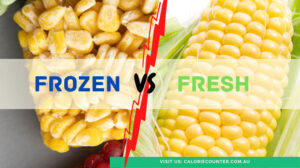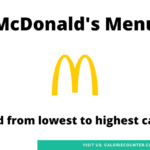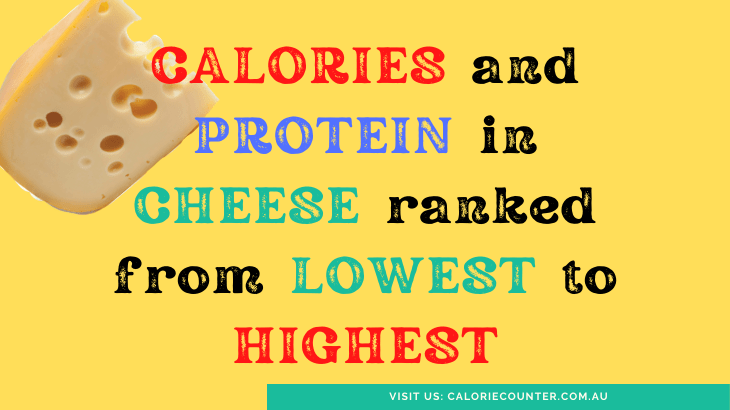One of our regular readers recently asked: “Why does there seem to be a huge difference in calories between Coles fresh and frozen seafood marinara mix?”. Aren’t they the same product? Why is there a 30-calorie difference between the two? We explained that frozen food typically has a much higher water content, which reduces its calorie count relative to its fresh counterpart, on a weight for weight basis.
We thought it might be fun to look at a few other popular grocery items which come in both fresh and frozen form. Here are some examples of how frozen items have a lower (or higher!) calorie count than fresh items:
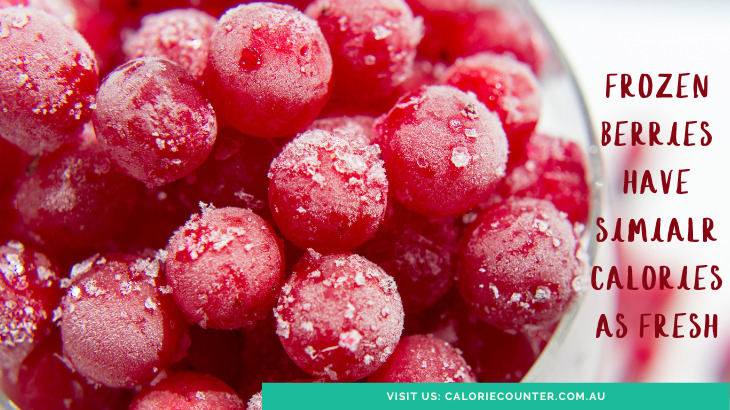
Frozen Blueberries have more calories
There is a minor difference between fresh and frozen blueberry calories, probably caused by there being relatively more indigestible material like stem particles and skin coating in the fresh ones:
Prawns – they add water to the Frozen ones
Major difference between fresh and frozen prawn calories! Probably because it is easy for seafood suppliers to “allow” lots of water to absorb into the prawn meat during processing!
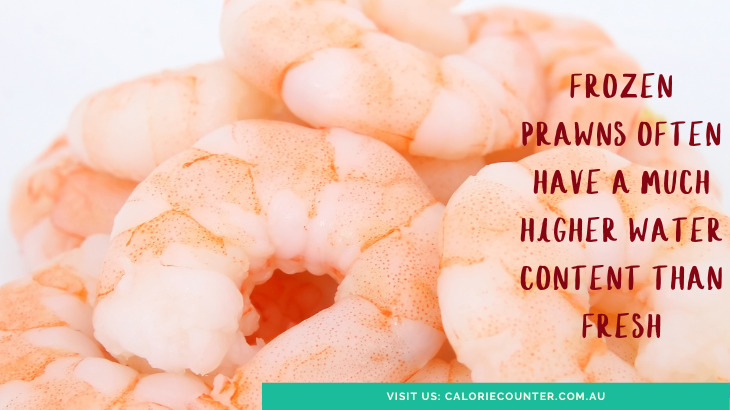
Fish (not much difference, fresh or frozen)
If you’ve seen our post on calories and protein in fish, you know that there is a huge difference in the calorie counts between fish species. For our purposes here, comparing fresh (thawed) and frozen Basa fillets should suffice:
Mixed Vegetables
Most vegetables don’t lose or gain calories by weight during the freezing and packaging process:
Frozen Banana = Fewer Calories
In the case below, we found that frozen bananas have about 5% fewer calories than fresh:
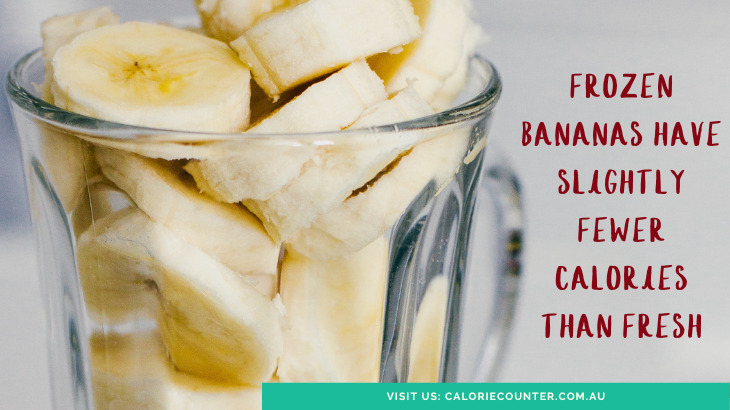
Pizza
Of course, the type of pizza matters much more than whether it is fresh or frozen! That said, we can look at pizza equivalents like these:
Frozen Spinach has the same calories!
It seems that none of spinach’s calories are lost in the freezing and packing process:
Peas
Fresh or frozen, you’re going to get about 60 calories per 100 grams in your side of peas:
Yoghurt
Taking a look at two (different) brands of vanilla-flavoured fresh and frozen yoghurt, we can see that there’s not much of a calorie difference:
Why do Frozen Foods have different calorie-counts to Fresh?
The biggest difference between fresh and frozen foods from a nutritional perspective is their water content. Water may be added or removed during the freezing and packaging process, especially if the food product is blanched before freezing. You’ll know when your frozen seafood has been “extra-hydrated” when it shrinks to a fraction of its frozen size in the pan!
Are Frozen foods just as Healthy as Fresh?
Think about what happens when food is frozen: it freezes. The water in the food changes from liquid to solid form. Since water expands when frozen, it can break some cell walls and thus changes the texture of some foods. That’s pretty much it. Sure, at the microscopic scale there are many other changes that a suitably qualified scientist could explain, but at the macro scale that’s all that happens.
Science says so
It has been shown that freezing then thawing fresh food can sometimes reduce the quantity of Vitamin C and some phytochemicals, but not by a massive amount. When fruit and vegetables are blanched prior to freezing, the Vitamin C content can be further reduced. The other vitamins, minerals, protein, carbs, fat, and fibre do not change to any significant degree.
So, yes, frozen foods are just as healthy as fresh foods (if they are fresh-frozen and consumed by their best-before date!). You can find nutrition information for any frozen food with calcount’s Food Search Box:
